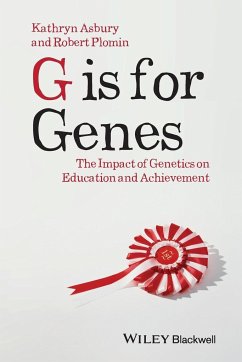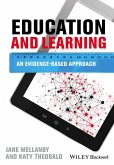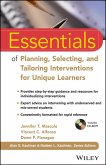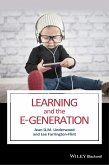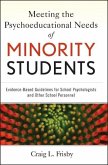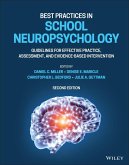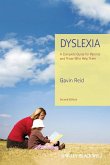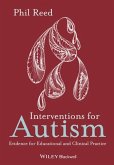G is for Genes shows how a dialogue between geneticists and educationalists can have beneficial results for the education of all children--and can also benefit schools, teachers, and society at large.
Draws on behavioral genetic research from around the world, including the UK-based Twins' Early Development Study (TEDS), one of the largest twin studies in the world
Offers a unique viewpoint by bringing together genetics and education, disciplines with a historically difficult relationship
Shows that genetic influence is not the same as genetic determinism and that the environment matters at least as much as genes
Designed to spark a public debate about what naturally-occurring individual differences mean for education and equality
Hinweis: Dieser Artikel kann nur an eine deutsche Lieferadresse ausgeliefert werden.
Draws on behavioral genetic research from around the world, including the UK-based Twins' Early Development Study (TEDS), one of the largest twin studies in the world
Offers a unique viewpoint by bringing together genetics and education, disciplines with a historically difficult relationship
Shows that genetic influence is not the same as genetic determinism and that the environment matters at least as much as genes
Designed to spark a public debate about what naturally-occurring individual differences mean for education and equality
Hinweis: Dieser Artikel kann nur an eine deutsche Lieferadresse ausgeliefert werden.
"G is for Genes" is a controversial book and this is exactly why it certainly makes an interesting reading." (Birth Defects Research Part A: Clinical And Molecular Teratology, 15 December 2014)
"This is a most important book for educationists, teachers, psychologists, parents and learners." (South West Review, 1 June 2014
"G is for Genes is an easy-to read book for a general audience, providing an extensive overview of findings from behavioral genetic studies related to education and achievement." (Twin Research and Human Genetics, 1 May 2014)
"In sum, G Is for Genesis an admirable effort by two authors who are excellent translational scholars. It alights on a number of important educational issues and does so in a reasoned and constructive manner." (PsycCRITIQUES, 7 April 2014)
Link to The Guardian - 18 February 2014
"This book breaks down complex science in an engaging and accessible way so that the wider audience can enjoy reading about genetic research, molecular biology, genome screening and most relevantly the implications for education." (Early Years Educator, 1 February 2014) Link to BBC - The Forum - 11 November 2013
Link to The Economist - 30 November 2013
"This book breaks down complex science in an engaging and accessible way so that the wider audience can enjoy reading about genetic research, moelecular biology, genome screening and, most relevantly, the implications for education." Early Years Educator, February 2014
"This is a most important book for educationists, teachers, psychologists, parents and learners." (South West Review, 1 June 2014
"G is for Genes is an easy-to read book for a general audience, providing an extensive overview of findings from behavioral genetic studies related to education and achievement." (Twin Research and Human Genetics, 1 May 2014)
"In sum, G Is for Genesis an admirable effort by two authors who are excellent translational scholars. It alights on a number of important educational issues and does so in a reasoned and constructive manner." (PsycCRITIQUES, 7 April 2014)
Link to The Guardian - 18 February 2014
"This book breaks down complex science in an engaging and accessible way so that the wider audience can enjoy reading about genetic research, molecular biology, genome screening and most relevantly the implications for education." (Early Years Educator, 1 February 2014) Link to BBC - The Forum - 11 November 2013
Link to The Economist - 30 November 2013
"This book breaks down complex science in an engaging and accessible way so that the wider audience can enjoy reading about genetic research, moelecular biology, genome screening and, most relevantly, the implications for education." Early Years Educator, February 2014

